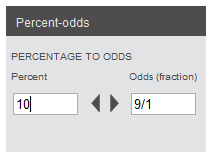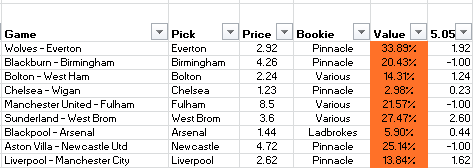I’ve recently been thumbing my way through a brilliant book called ‘Why England Lose & Other Curious Football Phenomena Explained’, which has inspired me to think differently about my betting on the beautiful game.
Now you would think a book entitled ‘Why England Lose’ might just contains 2 words… “Emile and Heskey”… but actually it tackles many of our (often wholly baseless) theories on football. Most England fans for example think that we underperform on the national stage, but as the book explains…as a nation we actually if anything do better than the stats say we should!
Beyond just England though, the book reveals some great stats for betting, such as the fact that home advantage globally is worth a head-start of roughly 2/3rds a goal per game. It’s not going to be bed time reading for the likes of Robbie Savage, but it is a great read if you like to think beyond footballing clichés.
Thankfully though you don’t need a master’s degree in Economics like Arsene Wenger to make use of stats in football (or even know how to sign a half-decent goalkeeper). Here are some ready to use resources and tips on how to apply them to your betting.
The Fink Tank Ratings
The Fink Tank ratings provided by the boffins at Dectech, bring together a number of factors to assess the percentage probability of a particular team winning, drawing or losing. We’ve been keeping track of the performance of these ratings here: https://smartbettingclub.com/blog/category/fink-tank/
Our test is simple, if the predicted chance of success is better than that implied by the bookies, you take the bet. So far the approach is working very well with a return of 31.55 points for the season with an ROI (Profit on Turnover) of 13%.
Kick off Percentage Stats
I was also put onto another great resource to help you with this in the form of http://www.kickoff.co.uk/, which lists the percentage chances in each Premier League game using easy on the eye pie charts.
They’ve also got a neat little tool which converts the percentage predictions into odds for you and vice versa. For example a 10%chance equates to 9/1 and this can be really useful for working out your bets.

Continue reading →






